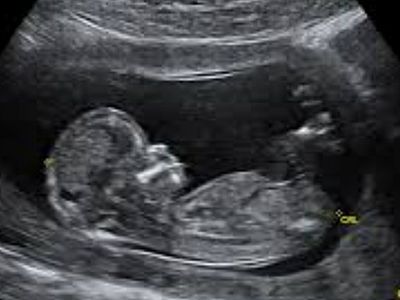Source: LifeSiteNews.com
Jerusalem, January 22, 2016
The number of abortions in the nation of Israel continues to decline dramatically, according to the Israeli Health Ministry.
The Israeli Central Bureau of Statistics (CBS) reported that there has been more than a twenty-percent drop in abortions from 2000 to 2014. The report explained that of the terminations in 2014 (17,500), half were cases of rape or other criminal activity.
The CBS report noted that the percentage of pregnant women who appeal for an abortion is diminishing, too. In 2013, 9.6 out of every 1,000 pregnant women appealed for an abortion – down by 50 percent from 1988. (The U.S. rate is 16 out of every 1,000.)
Abortion in Israel is legal with the approval of one of the nation's 41 pregnancy termination committees. Most requests are approved, especially if the woman is unmarried, or younger than 17, or over 40, or if there is a high risk of birth defects or any health risk to the mother. The committee is so lax that only about one percent of requests for abortion are denied.
Nevertheless, about half of the abortions in Israel are committed illegally, without committee approval, by private doctors.
Efrat CRIB ("Committee for the Rescue of Israel's Babies") is an Israeli pro-life organization based in Jerusalem that helps women in crisis pregnancies. The name, Efrat, comes from the Hebrew "to populate" and is a title the Jewish Midrash gives to Miriam, Moses's sister. When Pharaoh sought to kill all Jewish males two years of age and under, she risked her own life to save many and provided for the children's families.
Efrat CRIB claims to have 2,800 volunteers helping women decide to give life and providing for them financially. Efrat says its efforts since 1977 have saved over 64,000 Jewish children.
Not surprisingly, the pro-life organization is strongly opposed by many Israeli leaders. A law was proposed in the Israeli legislature (Knesset) to ban Efrat from providing information to women considering abortion, saying such pro-life efforts are "harassment." The law failed to pass, but efforts against Efrat continue.
In January 2014, the Israeli Knesset passed a reform to the national health coverage law, guaranteeing free abortion procedures to any patient between the ages of 20 and 33, regardless of circumstance.
The Israel Religious Action Center fought against allowing Efrat volunteers National Service pay, saying Efrat invades women's privacy, infringes on women's dignity, and impedes their freedom of conscience. The Supreme Court of Israel dismissed the suit.
Culturally, Jewish Israelis are very family-oriented. Statistically, they tend to marry young, have more children, and divorce less frequently than North Americans and Western Europeans.
Daphna Birenbaum-Carmeli noted in the journal Sociology of Health and Illness, "The biblical commandment 'be fruitful and multiply' constitutes childbearing as not only a goal in one's own life, but as a contribution to a collective mission. ... These biblical notions ... are repeatedly taught and alluded to in the national school curriculum."
Carmeli concludes, "Thus, even for many secular Israelis, childbearing often carries the broader significance of linking oneself to the communal Jewish body." As a result, Jewish Israelis view childbearing as not only positive and desirable, but also as a distinctive ethnic, religious, and social calling.
"Eventually, birth will determine our existence as a Jewish state," Efrat billboards state.
"An abortion does not resolve financial or social difficulties. Very often, the psychological scars caused by an abortion only serve to complicate existing problems," Efrat's website explains. "Economic and social problems can be worked out. Situations can – and do – change. But a life can never be restored."




